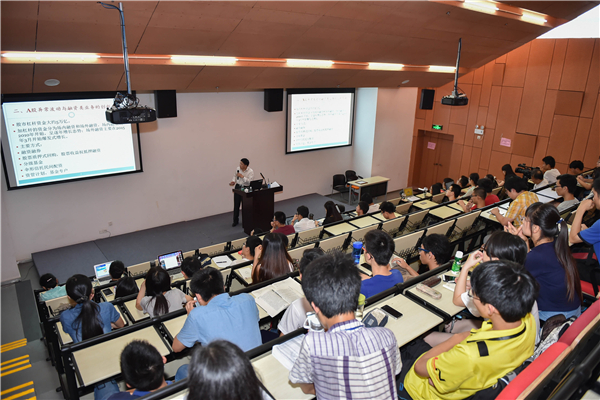On May 30, 2016, Nie Qingping, Party Secretary and Chairman of the Board of China Securities Finance Corporation Limited, was invited to attend the 72th session of SUSTech Lecture Series and reported on the issues of domestic stock market. This report was hosted by Professor He Jia of Department of Finance.
Nie Qingping, who used to work in People’s Bank of China, China Securities Regulatory Commission, China Everbright Limited, Securities Association of China, is now working as the Party Secretary and Chairman of the Board in China Securities Finance Corporation Limited. Dr. Nie has been long devoted to designing the system of Chinese stock market and researching relative policies with the fruits of over 50 academic articles in financial field and many financial-related works. At the same time, Dr. Nie is the researcher of Chinese Academy of Social Sciences, postgraduate supervisor as well as chair professor in Graduate School of Beijing University, Tsinghua University and Chinese Academy of Social Sciences.

In the beginning, Dr. Nie introduced the abnormal fluctuations of A-share market and the liquidity risk it had brought to financial market in July, 2015 as well as a series of relief measures from Chinese government. Then he talked about the review and reform in domestic capital market after abnormal fluctuations. Taking the financial crisis in America in 2008 as an example, Dr. Nie elaborated on two bailout measures of American government after the crisis. “We reflected much on the issues of domestic capital market. This round of decline in stock market should, as far as we are concerned, to a large extent be ascribed to the huge amount of leverage fund. Some people attribute the abnormal fluctuations of the share market in 2015 to the Short Mechanism, but it is the Long Mechanism which was caused by a plenty of high leverage funds that is to blame.”
Dr. Nie also gave a brief introduction to the innovation and development on financing operation in China, as well as the arbitrage in stock index futures. Lastly he expressed his optimistic attitude towards the future economic development of China.
Proofread By
Photo By